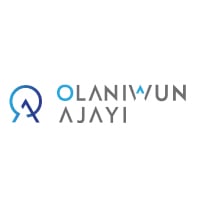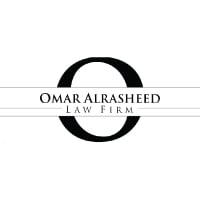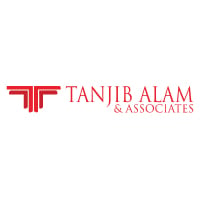

General counsel | Seafox Group (Seafox Middle East DMCC)











Jessica Crozier
General counsel | Seafox Group (Seafox Middle East DMCC)
Career Biography
Jessica Crozier, as General Counsel, is responsible for all legal matters for the Seafox Group of companies which is a shipowner / operator in the Middle East and in the North Sea with offices in the UAE, Qatar and The Netherlands operating jack up barges providing accommodation and crane support to the oil and gas and renewable energy industries.
She has worked for the Seafox Group since 2020 as their sole in-house lawyer. Crozier grew up in Northern Ireland and studied law at Cardiff University and qualified as a solicitor of England and Wales in 2009. Crozier previously worked in international law firms in London (Stephenson Harwood LLP) and Dubai (HFW Middle East LLP) having worked in their Marine and International Trade, and Shipping and Transport teams respectively.
Crozier has extensive experience in shipping (specialising in shipbuilding disputes, fraud and ship finance enforcements), banking disputes and commercial litigation under English and UAE law. Crozier is also a CEDR Accredited Mediator and has acted as mediator in several divorce disputes in the Middle East and hopes to branch into commercial/shipping mediations in the future. She has also completed CEDR training in Workplace Mediations.
She enjoys the challenge of working in-house due to the wide variety of issues that arise in any one day and that no two days are the same. She deals well with the necessary task of being reactive at times and remaining calm despite the emotions that may be presented by those around her. Crozier’s wide experience as a litigator and mediator means that she can work as General Counsel and company secretary without being too fazed by the task at hand.
What are the key projects that you have been involved in over the past 12 months?
Over the past year, our legal work has spanned a wide range of projects. As a shipping group, a large part of our focus remains on charterparty queries/disputes, which are generally resolved through arbitration because we operate across multiple jurisdictions, many counterparties such as national oil, gas, grid, and EPC companies require us to contract under local law rather than English law. This makes our work both diverse and technically challenging.
Where possible, we resolve issues before they escalate to arbitration or court proceedings. This approach is particularly important in shipping, where disputes often need urgent resolution as vessels are on hire or about to go on hire and often can have many passengers onboard. Resolving matters early helps us manage costs, maintain commercial relationships, and save time.
We are also managing an interesting taxation project before a European Member State’s taxation authority. The case involves whether the State’s customs handbook correctly transposes EU directives and whether exemptions apply to the use of excise-free diesel while vessels are in port or within the 12-nautical-mile economic zone. A central issue is whether our vessels qualify as being used “in navigation.”
In parallel, we have been engaged in enforcement proceedings in the UAE for non-payment of hire, a common issue for offshore vessel operators in the region—as well as projects involving public procurement law, re/delivery issues under European laws, and a range of corporate matters.
A particular highlight this year has been preparing for the delivery of a newbuild vessel from China, expected by the end of the year. Negotiating the deal and visiting the shipyard to see the vessel under construction was a unique and enjoyable experience, as newbuild projects are not something I routinely handle. It has added a different and rewarding dimension to my usual workload.
How do you approach managing legal aspects during periods of instability or crises, and how does your legal strategy align with the broader business strategy to ensure the organisation’s resilience?
As the sole lawyer in the legal team, my approach to managing legal aspects during periods of instability or crisis is grounded in flexibility, prioritisation, and alignment with the wider business strategy. In such a role, I must be able to pivot quickly to address urgent issues without losing sight of broader organisational needs, while also maintaining the steady flow of day-to-day legal support.
In practice, this means constantly reviewing and prioritising tasks based on urgency, business impact, and complexity. Under normal circumstances, I balance matters according to their importance, deadlines, and the time required to complete them. However, during crises, this shifts immediately to an “all hands-on deck” approach. In those moments, it is critical to respond swiftly, ensuring the business has the legal clarity and risk management support it needs. Where additional expertise or resources are required, I do not hesitate to seek external assistance — and at times our Protection & Indemnity Club (“P&I Club”) provides invaluable support.
Shipping, by its nature, is an industry where operational problems can escalate rapidly into crises, whether relating to vessels, crew, passengers, or cargo. These situations demand swift, coordinated responses, and it is vital that the legal function helps the business maintain composure and direction. In such high-pressure moments, I focus on remaining calm, providing structured advice, and supporting colleagues across operations and commercial teams who may react differently under stress. By bringing a clear and measured perspective, I help the organisation avoid reactive decision-making and instead move forward on a legally sound and commercially practical basis.
My legal strategy in these moments is always designed to support resilience: ensuring compliance, protecting people and assets, mitigating potential liabilities, and enabling operations to continue with minimal disruption. I see it as my role to act both as a risk manager and a stabilising presence, aligning legal priorities with the organisation’s wider objective of safeguarding business continuity.
Much like a ship adjusting course to navigate through a storm, I adapt my workload in real time, reprioritising so that urgent matters receive immediate attention, while less critical tasks are rescheduled for when stability returns. This flexibility allows me to manage crises effectively without losing focus on the longer-term legal and strategic goals of the business.
Ultimately, it is the ability to adapt, remain composed, and collaborate closely with operations, commercial colleagues, and external partners such as our P&I Club and/or lawyers that ensures the legal function contributes meaningfully to the organisation’s resilience. By combining sound judgement with practical problem-solving, I aim not only to resolve crises as they arise but also to strengthen the business so that it emerges more resilient each time.
Have you had any experiences during your career as a lawyer that stand out as particularly unique or interesting?
One of the most unique and challenging experiences in my career as a lawyer involved a complex shipping dispute centred around the redelivery of a vessel after a long-term charter. This case stood out due to the multifaceted nature of the issues and the real-time pressures that required innovative solutions.
The vessel in question was nearing the end of its commercial lifespan, usually around 20 years, and was due to be redelivered to its owner in the same condition as at the start of the charter, akin to real estate dilapidations claims. However, the client I represented, the charterer, was reluctant to fund repairs, arguing that the vessel was close to being scrapped. Complicating matters, the vessel’s class certificates were set to expire within days, the crew was on strike due to unpaid salaries and had engaged human rights organisations, and the vessel was detained by the port for unpaid dues and HSE violations. Additionally, the vessel was blocking a berth at a very busy middle eastern port which of course just added to the amount in dispute and urgency.
The negotiations were exceptionally challenging. The crew refused to steam the vessel back to its home port in the UAE until paid, the client refused to cover repair costs or outstanding hire, and the owner withheld payments for the crew and port dues pending settlement from the charterer. This created a deadlock with significant operational, legal, and humanitarian implications.
The innovative strategy we employed involved a phased resolution to break the impasse. By collaborating closely with the owner and charterer, we prioritised settling a portion of the dispute to release funds for the crew’s salaries and port dues. This allowed the vessel to be redelivered to its home port before the class certificates expired, if there was any more delay the entry into the port would have been refused, a situation that would have escalated the complexity of repatriating the crew and addressing repairs. Once the vessel was safely redelivered, the real-time pressures eased, enabling us to focus on resolving the core dispute between the parties.
This experience was particularly memorable because it required balancing immediate operational challenges with long-term legal strategy and innovative solutions to appease the crew. Working as part of a team to navigate the deadlock and finding a practical solution to ensure the vessel’s redelivery while addressing the crew’s welfare and port issues was both challenging and rewarding.
Situations like this are what make a shipping lawyer’s job interesting and varied. I have enjoyed working on many projects and litigation matters over the years that require a diverse skill set, blending practical problem-solving with legal expertise.
What is a cause, business or otherwise, that you are passionate about?
As a CEDR accredited mediator, I am deeply passionate about the transformative potential of mediation to resolve disputes with empathy, efficiency, and fairness. My mediation experience primarily centers on navigating divorce and family disputes in the UAE, where I’ve seen firsthand how mediation can bring clarity and closure to emotionally charged conflicts.
Mediation is a rewarding and essential tool for fostering understanding and resolution. As a litigation lawyer, I’ve witnessed how disputes often escalate, sometimes as a tactic to delay payment, but more frequently because parties are entrenched in their positions, unable to find common ground. Poorly drafted contracts can fuel these standoffs, with each side convinced their interpretation is correct. While arbitration or court proceedings can resolve such issues, they often drag on for years, draining time, resources, and patience.
This is where mediation shines as a powerful alternative, particularly in the Middle East and in shipping, where disputes are common. I strongly advocate for ADR as a faster, more collaborative approach. For instance, in a recent low-value UAE law issue, we have agreed to refer the matter to a neutral third party and have agreed to be bound by their decision which is an efficient and binding solution that will hopefully avoid prolonged litigation. While mediation doesn’t guarantee resolution, the statistics are compelling: a significant percentage of mediations result in settlements either during the process or shortly thereafter. As in-house counsel, my mediation training is an invaluable asset. It equips me to facilitate constructive discussions, whether between colleagues or with external parties, fostering practical and mutually beneficial solutions.
General counsel | Seafox
General counsel | Seafox Group